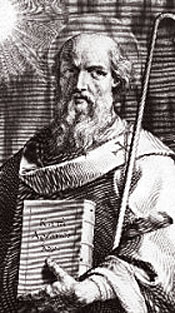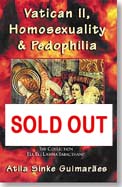 |
Homosexuality and the Clergy
Should Lay People Help Govern the Church?
Atila Sinke Guimarães
After completion of the book Vatican II, Homosexuality and Pedophilia, I thought it convenient to expound and refute some of the most common sophisms that surround the two-fold crisis of homosexuality and pedophilia that scourges the Catholic Church.
This is the second sophism and its answer taken from the work's Appendix.
Sophism 2 – Given the laxity of the Bishops in their stance regarding pedophile and homosexual priests, lay participation should be a normal part of the government of the Church from now on.
Answer – Since the post-conciliar ecclesiastical establishment seems to be institutionally unable to correct or heal itself, no one really knows what God will do to save the Catholic Church.
One possibility among many is that He can make the healing process begin by an initiative of the lay people. Perhaps this process has already begun with some of the different actions American lay Catholics took in 2002 and 2003 pressuring the Hierarchy to be rigorous in dealing with pedophile and homosexual priests.
Certainly, the role of diocesan lay boards with a voice in Bishops’ decisions regarding pedophile priests is a measure that per se inhibits the practice of complicity in the ecclesiastic milieu. Therefore, they seem useful for the moment.

At the time of St. Athanasius, the lay people played a role in maintining the true doctrine |
Nonetheless, even though lay participation in some episcopal decisions could help to restore morals, it does not necessarily mean that lay people should henceforth make up part of the government of the Church.
In the fourth century the Catholic Church experienced a severe crisis in which the totality of the Bishops less two (St. Athanasius and St. Hilary of Poitiers) signed a semi-Arian formula of faith infected with heresies. At that time orthodoxy was sustained by the lay faithful, and not by the Hierarchy.
Therefore, the lay people played a major role in maintaining the continuity of the Catholic Faith. This did not mean, however, that lay people would have the final word in the teaching of the Church from then on. Analogously, if the morals of the Church today were to rely on lay people, this would not mean that they should be part of the government of the Church from now on.
One thing is a provisory medicine taken to cure a specific disease, another thing is to assume that the medicine should be taken forever, even after the sickness is over.
Therefore, it is not necessary to change the essential structure of the Church to include lay people as a permanent part of her government.

Posted May 5, 2004
Sophism 1 |
Sophism 3 |
Sophism 4 |
Sophism 5 & 6 |
Sophism 7

To purchase this book,
click here
|
Homosexuality | Hot Topics | Home | Books | CDs | Search | Contact Us | Donate

© 2002- Tradition in Action, Inc. All Rights Reserved
|
 |
|